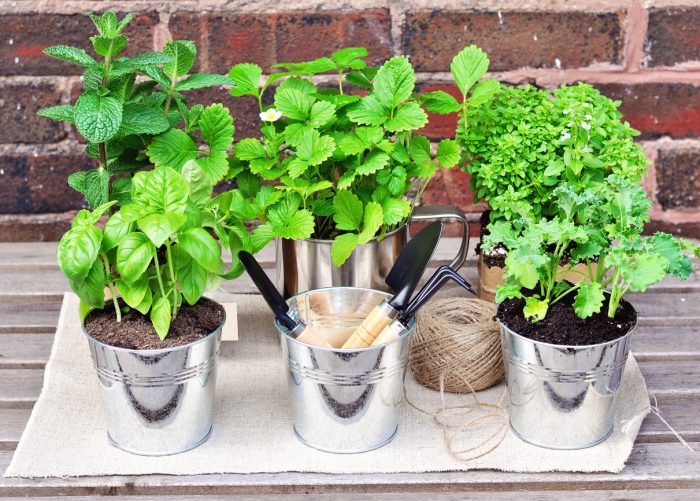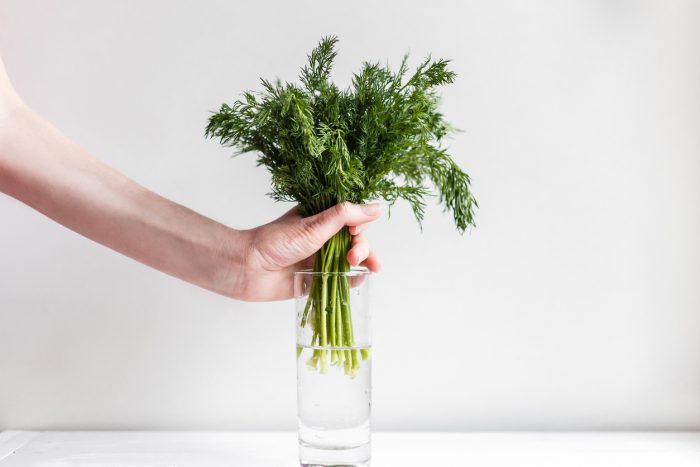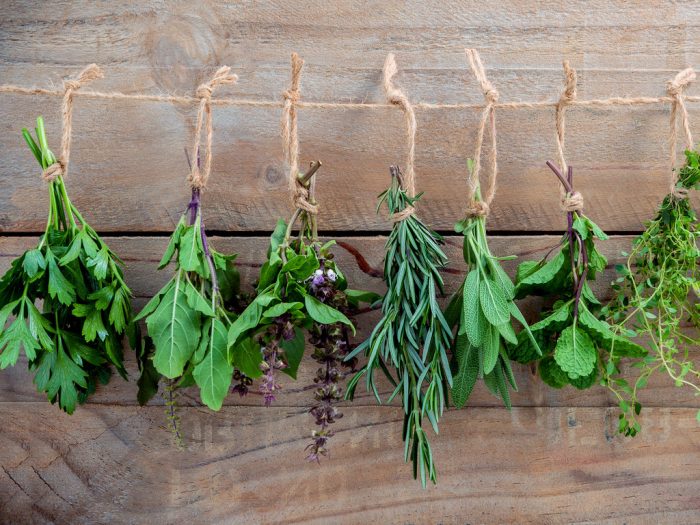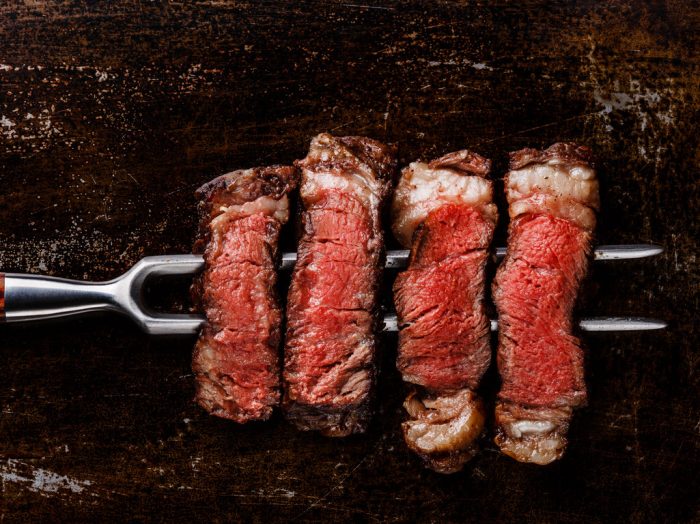Cooking with fresh herbs is a pleasure. Their smell is a blessing in your kitchen and their flavor turns any dish into a complex experience for your taste buds. But can you keep the bunches of parsley, thyme, or chives fresh for a longer time after you buy them?
I had a simple yet beautiful childhood. My mom used to cook almost every day and my brother and I always had warm food on the table when we got back from school. She usually didn’t make me help her. Still, I had some responsibilities when it came to cooking. I had to go to our garden and pick up parsley, dill, or lovage. The last one is not commonly found in the fresh herb sections at the grocery store, but it’s easy to grow. So, to enjoy this versatile herb in your kitchen, plant your own lovage in a corner of your garden. I used to take just as much my mum needed because we always had fresh herbs on hand. Actually, my mum still has them. But I don’t. That’s why I needed to learn how to keep herbs fresh for a long time after I buy them from the market.
There are two types of fresh herbs
First of all, sort your herbs. They are all different: different leave shape, different smell, different flavor, different uses depending on the recipe. But you can divide them into two types of fresh herbs: hard and soft.
Soft herbs like basil, parsley, cilantro, dill, mint, lovage, and tarragon have soft, tender stems.
Hard herbs like rosemary, sage, savory, chives, oregano, marjoram, bay leaves, and thyme have woody stems.

How to store to keep them fresh for a week
Maybe you can’t go to the market every day. Maybe you buy in bulk everything you need to cook for a week. That’s why it’s useful to store fresh herbs properly, to keep them firm and fresh until the next trip to the market.
The first rule: Don’t wash fresh herbs until you want to use them.
The second rule: Think in terms of soft herbs and hard herbs.
Soft herbs are as delicate as flowers. So treat them gently. Trim the ends of the stems and put the fresh herbs in a glass of fresh water, but change it out every day or every other day. Basil is special because it’s the only herb that should be kept at room temperature. The rest – parsley, cilantro, dill, lovage, mint, tarragon – should be kept in the refrigerator, covered loosely with a plastic bag. Their leaves must be completely dry before you cover them.
Hard herbs are not as capricious. Wrap them in a damp paper towel. Then, place them in a plastic bag or in plastic wrap, but don’t make it tight. Place them in your crisper until you need them for a recipe.

Soft and hard. What to do with them?
When you want to use them, rinse herbs with cool water to remove dirt, and gently shake off the excess moisture. Then pat them dry with paper towels.
Keep in mind that basil – this wonderful aromatic herb – is perfect for sauces, salads, sandwiches, and homemade pizza. To benefit from its great aroma, here are a few tips on how to chiffonade basil. Parsley is a versatile herb, that can be used in almost any dish. Add it to pasta, eggs, fish, and meat.
If you want to make salsa, chutneys, guacamole, and other Mexican dishes, cilantro is the fresh herb you are looking for. Dill is your best option for pickles, but also for fish dishes and dressings. Tarragon is a good choice for cooking chicken, fish, and egg dishes. Lovage is especially good used in soups, sauces, casseroles, and stews. Mint is special among fresh herbs because it’s generally used to make desserts. It can be beautifully paired with chocolate, but also with a mojito and with lamb dishes.
Fresh bay leaves are used in soups, stews, and sauces, but also in meat, seafood, and vegetable dishes. Unlike dry bay leaves, their flavor is stronger, that’s why you should remove them from the pan earlier in the cooking process. Chives are great for whipping up cream sauces, risotto, and to add flavor to any sandwich or dish.
Marjoram is usually used in meat and poultry recipes, as well as stuffing. Oregano can be used in homemade pizza crust, pasta dishes, and dressings. Rosemary has a strong flavor, and it is perfect for seasoning potatoes or poultry dishes. Use sage when you cook Brussels sprouts, roasted squash, sausages, quesadilla, or creamy dishes, and thyme if you’re making stews, rice dishes, dips, and sauces. The savory herb is used to flavor soups, stews, and vegetables.
Without herbs, the world would be tasteless. But if you want to amaze your taste buds keep this in mind: fresh herbs are a must-have in any season!
Here’s a pesto recipe of how to make good use of your herbs:
https://www.youtube.com/watch?time_continue=5&v=Wg6mDS1bsk4






